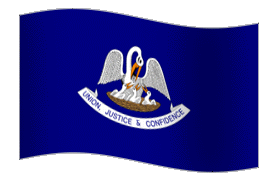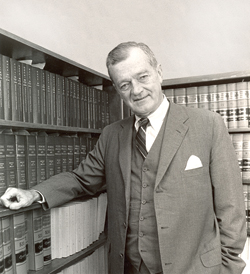 A Louisiana statute lets private citizens sue to enforce certain state environmental laws, provided that “any injunction the citizen might obtain must be entered in favor of the Commissioner of Louisiana’s Office of Conservation.” Straightforward substantively, this statute raises federal-jurisdiction questions “that would make for a tough Federal Courts exam.” Grace Ranch LLC v. BP Am. Prod. Co., No. 20-30224 (Feb. 26, 2021). Specifically:
A Louisiana statute lets private citizens sue to enforce certain state environmental laws, provided that “any injunction the citizen might obtain must be entered in favor of the Commissioner of Louisiana’s Office of Conservation.” Straightforward substantively, this statute raises federal-jurisdiction questions “that would make for a tough Federal Courts exam.” Grace Ranch LLC v. BP Am. Prod. Co., No. 20-30224 (Feb. 26, 2021). Specifically:
- Is Louisiana a party to the suit? If so, diversity jurisdiction does not apply. The Fifth Circuit concluded that it was not a party, notwithstanding the potential for relief issued in its name, “because [Louisiana] has not authorized landowners to
 sue in its name” in the relevant statute. Similarly, Louisiana is not a real party in interest because the potential for an injunction in its favor is a “contingency,” which would make it “highly inefficient to remand the case to state court only at the end stage of the lawsuit when the injunction might issue.”
sue in its name” in the relevant statute. Similarly, Louisiana is not a real party in interest because the potential for an injunction in its favor is a “contingency,” which would make it “highly inefficient to remand the case to state court only at the end stage of the lawsuit when the injunction might issue.” - Does the 5th Circuit have jurisdiction? The matter was removed to federal court and the district court decided to abstain. Reviewing the not-always-clear history of 28 USC § 1447(c) and the cases applying it, the Court concluded that “a discretionary remand such as one on abstention grounds does not involve a removal ‘defect’ within the meaning of section 1447(c).”
 Was Burford abstention appropriate? Grace Ranch involved the remediation of environmental damage caused by a now-outlawed way of storing waste from oil and gas production. The Court reversed the district court’s decision to abstain, agreeing that the case presented “the potential need to decide an unsettled question of state law, in an area of general importance to the State”–but also finding that the case does not involve “an integrated state regulatory scheme in which a federal court’s tapping on one block in the Jenga tower might cause the whole thing to crumble.”
Was Burford abstention appropriate? Grace Ranch involved the remediation of environmental damage caused by a now-outlawed way of storing waste from oil and gas production. The Court reversed the district court’s decision to abstain, agreeing that the case presented “the potential need to decide an unsettled question of state law, in an area of general importance to the State”–but also finding that the case does not involve “an integrated state regulatory scheme in which a federal court’s tapping on one block in the Jenga tower might cause the whole thing to crumble.”













